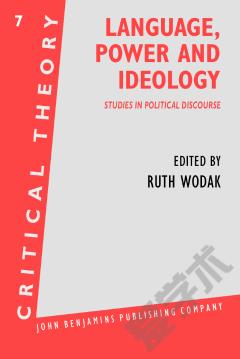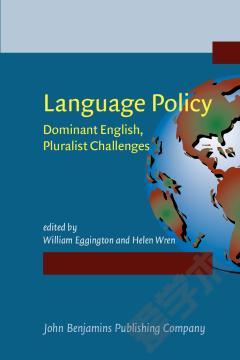Ideology, Politics and Language Policies. Focus on English.
This volume critically examines the effects of the spread of English from colonialism to the ‘New World Order’. The research explores the complex and often contradictory roles English has played in national development. Historical analyses and case studies by leading researchers in language policy studies reveal that deterministic relationships between imperial languages, such as English, and societal hierarchies are untenable, and that support of vernacular languages in education and public life can serve diverse ideologies and political agendas. Areas and countries investigated include Europe, North America, Australia, Hong Kong, India, Malaysia, Singapore, South Africa, and Sri Lanka. The role of theory in language policy scholarship and practice is critically evaluated. A variety of research methodologies is used, ranging from macro-sociopolitical and structural analyses to postmodern approaches. The work collectively represents a new direction in language policy studies.
{{comment.content}}








 京公网安备 11010802027623号
京公网安备 11010802027623号